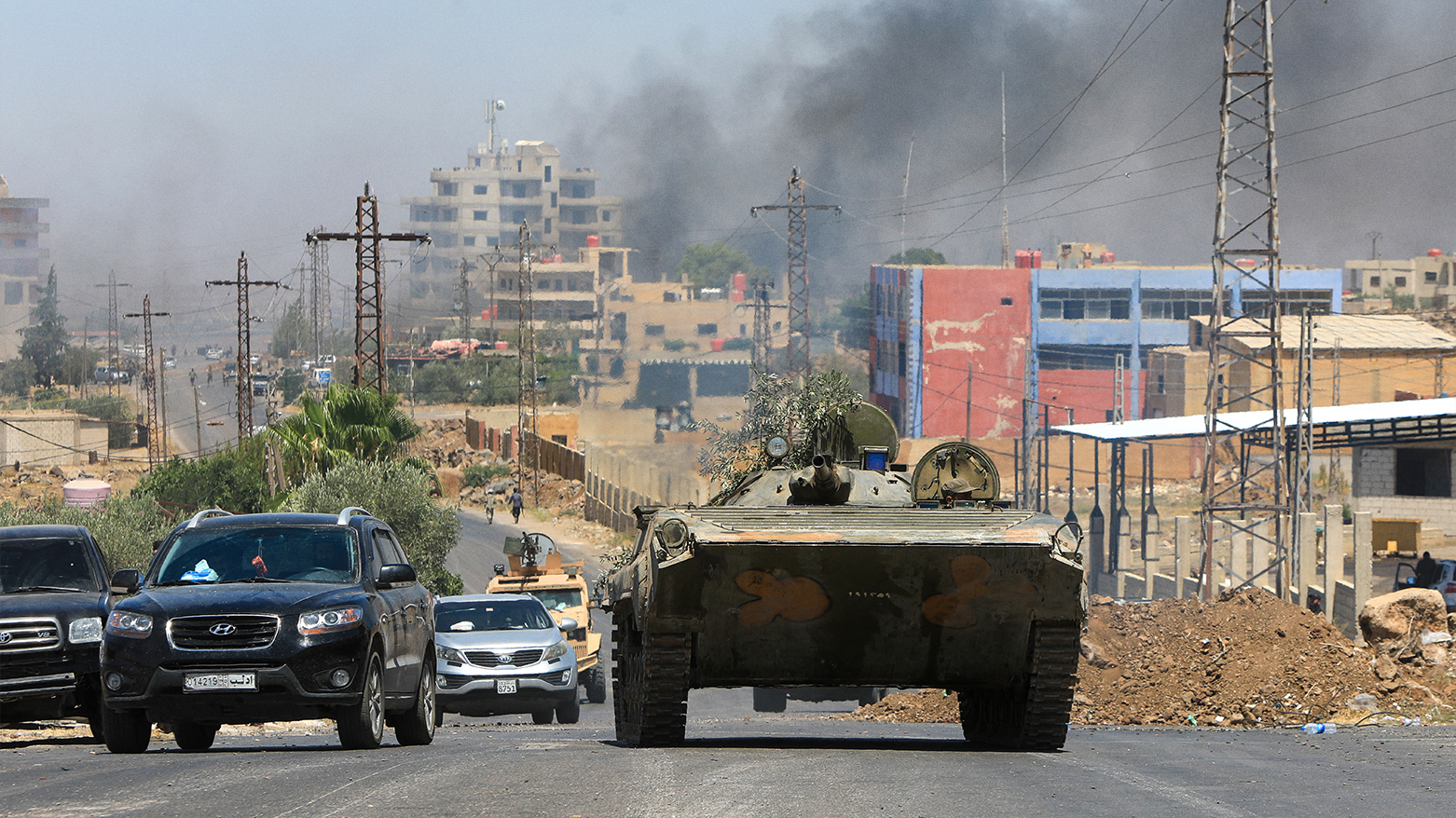Over 200 Killed in al-Suwayda Clashes: SOHR
Over 200 people were killed in fierce clashes in Syria's Al-Suwayda province, sparking a humanitarian crisis with power outages, displacement, and looting, according to the Syrian Observatory for Human Rights. A fragile ceasefire is now reportedly in place.

By Kamaran Aziz
ERBIL (Kurdistan24) – Fierce clashes in Syria's southern al-Suwayda province have left over 200 people dead, including dozens of executed civilians, and triggered a severe humanitarian crisis as fighting between Syrian government-aligned forces and local Druze fighters engulfed the region, the Syrian Observatory for Human Rights (SOHR) has reported.
The Britain-based war monitor documented a rapidly deteriorating situation as clashes, which began on Sunday, July 13, entered their second day. According to an SOHR report dated July 15, the violence has pitted Syrian Defence Ministry forces and allied Bedouin tribes against local fighters from the predominantly Druze province.
Since the fighting began, SOHR has documented the deaths of 203 people. The war monitor provided a detailed breakdown of the casualties, reporting that the dead include:
- 111 members of the Defence Ministry, General Security, and affiliated Bedouin gunmen.
- 71 people from al-Suwayda Province, among them four children and two women.
- 21 civilians, including three women, who were reportedly executed by Defence and Interior Ministry forces.
The violence has plunged the region into a humanitarian emergency. Main power lines have been knocked out of service, cutting electricity to neighborhoods in al-Suwayda city and its western countryside, SOHR reported. The outage also caused water pumping stations to stop, leaving residents without water since the day before the report.
Markets in al-Suwayda city were described as "almost completely paralysed," with most shops closed due to fears of shelling or looting. The war monitor detailed large-scale displacement, with numerous families fleeing frontline areas in the towns of Al-Mazraa, Kanaker, and Al-Tha’lah. There are now serious concerns over the depletion of basic food supplies and medicine as road closures hinder aid delivery.
According to SOHR, mortar shells fired from positions of Bedouin tribes and Defence Ministry forces struck residential neighborhoods in al-Suwayda city, hitting areas like Al-Maslakh, Al-Jalaa, and the towns of Rasas and Qanawat, causing material damage and panic among civilians.
The Observatory also documented widespread violations allegedly committed by forces affiliated with the Syrian Defence Ministry. These include sabotage operations targeting civilian homes and properties, looting, and smashing doors and windows. SOHR noted that the violations extended to a church and that medical staff treating the wounded were also assaulted. The war monitor stated these actions targeted Druze civilians with "insults, assaults on their dignity and property."
Despite the intensity of the fighting, SOHR later reported on steps toward de-escalation, including a ceasefire agreement announced by the Minister of Defence. Following the announcement, SOHR activists observed the withdrawal of tanks and armored vehicles from al-Suwayda city, a move the monitor suggested was an "attempt to absorb public anger and ease off tension."
However, tensions remain high. General security forces have deployed in large numbers to vital posts, and a partial, unofficial curfew has been imposed at night. SOHR warned that the conflict threatens the "civil peace" between the Bedouin and Druze communities and risks creating further division in Syria.
Al-Suwayda is a predominantly Druze-majority province in southern Syria.
Throughout the country's long-running civil war, the province has largely remained under the control of the central government in Damascus but has maintained a unique status with a degree of local autonomy, as reported by outlets such as the Associated Press and Reuters. Local Druze leaders and fighters have often focused on defending the province from external threats while resisting the conscription of their youth into the Syrian army to fight elsewhere in the country.
In recent years, before these clashes erupted, al-Suwayda had become a focal point for major anti-government protests driven by a collapsing economy and calls for political change, according to international media reports.
